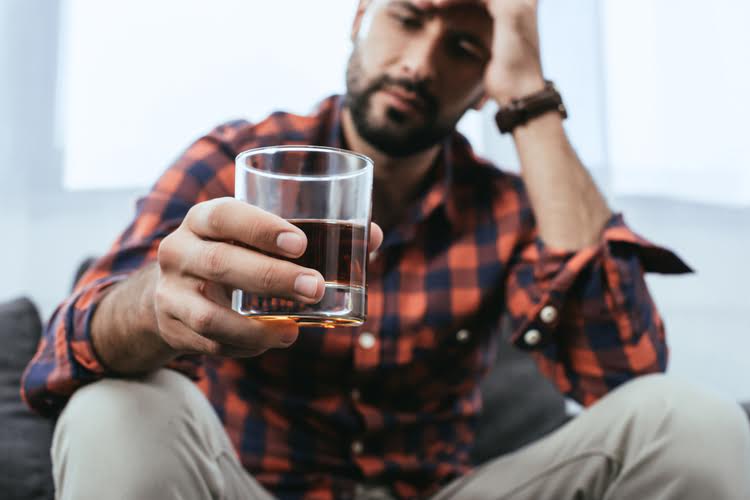Your Guide To Sudden Alcohol Intolerance & Alcohol Allergies
Content
An alcohol allergy can occur when a person with an alcohol allergy comes into contact with alcohol, which is also known as ethanol. An alcohol allergy occurs when the immune system overreacts to alcohol entering the body.
Alcohol Alcohol use disorder affects millions of people in the United States. Learn more about the risks and how to get help.Drugs If you or a loved one is struggling with drug abuse, you’re not alone. Learn more about the most commonly misused drugs.Addiction Treatment Going to a rehabilitation program greatly increases your chance of long-term recovery. Learn more about your options.Addiction Resources If you have more questions about addiction, we’ve gathered resources to help you and your loved ones. The best treatment for mild to moderate alcohol intolerance is to avoid over-drinking.
How Do I Prevent An Adverse Reaction To Alcohol?
But staying away from alcohol can free you from the uncomfortable hot flushes and digestive issues that come with alcohol intolerance. Plus, avoiding alcohol lowers your risk for cancer and other serious diseases. If you have alcohol intolerance but still find yourself drinking excessively, despite the pain and discomfort, talk to your healthcare provider.
If you have a reaction while out in public, it is important to assess the situation and treat it accordingly. Lie down if possible and contact a healthcare professional as soon as possible, even if it does not seem to be life-threatening. The liver is unable to break down alcohol at a comparable rate to when you were younger. This allows alcohol to stay in your system longer and generally leads to a more heightened feeling of intoxication.

Antihistamines can also be helpful to resolve minor allergy symptoms for some people. For others, alcohol might have to be taken out of the picture altogether. There is only one way to know for sure, visit your allergist and get tested. Just remember that alcohol intolerance can increase the risk of serious health conditions if you continue drinking. Even if you don’t have alcohol intolerance, drinking high levels of alcohol frequently is also dangerous for your health. The only way to manage this condition is to abstain from alcohol.
What Causes An Alcohol Allergy?
This naturally occurring chemical in your body is found in beer, champagne, and wine, particularly red wine. It is also found in foods like smoked meats, aged cheese, salted fish, vinegar, and yogurt.
It can be brought on by viruses, but also stress, mould, alcohol and a few other things according to what I’ve read.
Doctors are very dismissive when it comes to these symptoms. I would keep bringing it up — especially when he’s having an allergy “attack” as I call them
— salvia plath (@ess_kew) December 8, 2021
Alcohol intolerance is when a person experiences an immediate reaction to drinking alcohol, most commonly in the form of the skin flushing or a stuffy nose. This is the result of a genetic condition that causes the body to be unable to break down alcohol. People with even a mild alcohol intolerance should avoid alcohol. The liver breaks down the alcohol that we drink and converts it to a chemical called acetaldehyde. Severe allergic reactions have been described in people with allergies to proteins within grapes, yeast, hops, barley and wheat. Furthermore, fining agents are sometimes used to remove fine particles. Whether these occur in sufficient amounts to trigger allergic reactions is unknown.
Alcohol Sensitivity, Intolerance, Or Allergies?
When it’s removed, your skin will be checked for signs of swelling, hives, or redness. If bourbon or whiskey is your drink of choice, you will want to check how they were fermented, as some of these liquors are fermented in oak or other tree barrels. The most common symptoms include facial redness, hives, nasal congestion or a runny nose, headache, nausea, vomiting, and the worsening of a pre-existing alcohol alergy symptoms asthma condition. Having an alcohol intolerance is a genetic condition that means your body can’t process alcohol easily. With this condition, you have an inactive or less-active form of the chemical that breaks down alcohol in your body. Alcohol intolerance is a real condition that may occur suddenly or later in life. Key personal information, including major stresses or recent life changes.

Red wines contain relatively few sulfites; white wines are low in histamines. White wine tends to contain higher levels of sulfites than red wine and beer. Depending on the allergy severity, a person may treat symptoms with over-the-counter medications, such as oral antihistamines, if the reaction is mild. If a person is allergic to a particular ingredient found in some drinks, they could switch to drinks that do not contain it. Alcohol allergy symptoms can range from mild, such as an itchy mouth or eyes, to severe, including vomiting or anaphylaxis. Another enzyme called aldehyde dehydrogenase 2 helps convert acetaldehyde to acetic acid , which is nontoxic. An enzyme called alcohol dehydrogenase helps metabolize the ethanol.
Alcohol Intolerance Prevention And Treatment Options
An ethanol or alcohol allergy is extremely rare and is due to an enzyme deficiency. Instead, you may have an intolerance, where uncomfortable but non-life-threatening symptoms are presented because you are reacting to one of the ingredients in the alcoholic drink. A skin prick test, also called a puncture or scratch test, checks for immediate allergic reactions to as many as 40 different substances at once. This test is usually done to identify allergies to pollen, mold, pet dander, dust mites and foods.
- Antihistamines like Allegra and Zyrtec may help alleviate histamine intolerance symptoms.
- However, just because you feel ill after drinking alcohol doesn’t mean you’re sick.
- Ark Behavioral Health offers 100% confidential substance abuse assessment and treatment placement tailored to your individual needs.
Therefore, it is likely that your family members are at risk for the same problem. The main risk factors for having a problem with ALDH2 is being of East Asian descent, especially Sober living houses Chinese, Korean or Japanese. Hives generally fade without treatment within 24 hours of appearing. One study of 948 individuals found that 7.2% self-reported wine intolerance.
Histamine Intolerance
Instead, avoid the types of alcohol that cause reactions or avoid alcohol entirely. Most people who react to alcohol are intolerant, not allergic. However, it is possible for alcoholic drinks to trigger an over-active and harmful immune system response in certain individuals, just as with food allergies.
While its symptoms can be inconvenient and uncomfortable, they are typically not fatal. The condition is also genetically inherited, which means there’s nothing you can do to prevent it. If you are sensitive to an additive rather than alcohol itself, you may have options with regard to beverages.
Content is reviewed before publication and upon substantial updates. Victoria Groce is a medical writer living with celiac disease who specializes in writing about dietary management of food allergies.

To date, there has been very little research done on yeast allergies and distilled spirits. If you are allergic to yeast and would like to make these beverages part of your diet, you should discuss further allergy testing with your allergist. Therefore, if you have celiac disease or non-celiac gluten sensitivity, you’ll need to steer clear of conventional beer. If you have a wheat allergy, you can drink beer that’s made with barley but not wheat. This leads to a higher blood alcohol content than if you were to drink the same amount at a younger age.
Find Your Treatment That Works For You!
An outpatient program still gives you access to evidence-based treatment and care, but on a part-time basis. A residential treatment program will allow you to reside at the treatment site, where you will receive intensive counseling and therapy. Rarely, alcohol detox can cause serious withdrawal symptoms known as Delirium Tremens that can be fatal if not treated. It’s worth noting that just because the placebo effect works doesn’t mean that allergies are all in your head. Or rather, even if it does mean that, that doesn’t imply allergies aren’t real or meaningful.
It can be brought on by viruses, but also stress, mould, alcohol and a few other things according to what I’ve read.
Doctors are very dismissive when it comes to these symptoms. I would keep bringing it up — especially when he’s having an allergy “attack” as I call them
— salvia plath (@ess_kew) December 8, 2021
It is caused by the absence of an enzyme needed to metabolize the ethanol in the alcoholic beverages. Ethanol, in some people, is a non-specific activator of allergy cells that can cause hives and more severe reactions. Our tests do not detect allergic reactions to alcohol, if you feel that you may have an alcohol allergy, please consult your doctor or medical professional. The gluten derived from grains found in beer can also result in allergic reactions.

